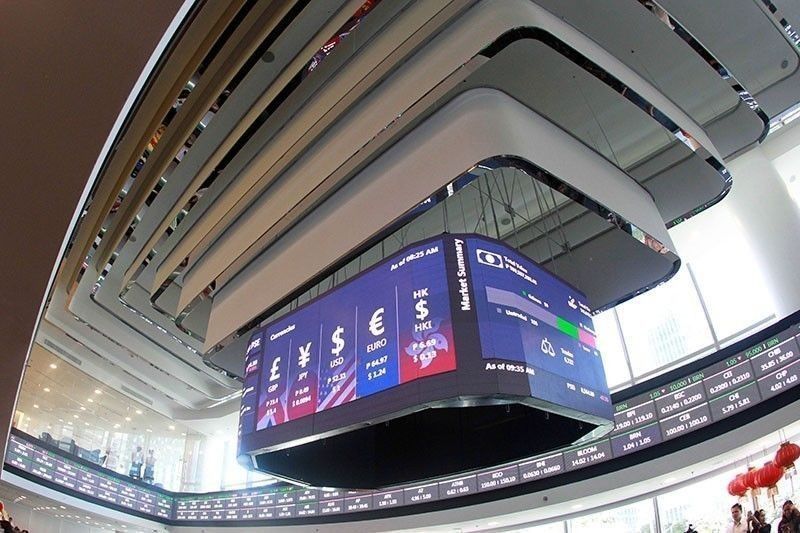US Fed rate woes bring down index

MANILA, Philippines — Local stocks tumbled yesterday, along with other Asian markets, after the US Federal Reserve added to recession fears by saying it wasn’t finished raising interest rates to cool inflation.
The benchmark Philippine Stock Exchange index or PSEi slipped to 6,156.11, down 50.13 points or 0.81 percent, while the broader All Shares index fell to 3,257.83, down 19.18 points or 0.59 percent.
Total value turnover was thin at P4.45 billion. Market breadth was negative, 114 to 61, while 37 issues were unchanged.
“Along with other markets, the main index dropped by 50.13 points (0.81 percent) to 6,156.11 after the Federal Reserve raised interest rates by 75 basis points while hinting to do more ahead,” Claire Alviar of Philstocks Financial said in a note.
The result of this, she added, is that investors will be anticipating the decision of the Bangko Sentral ng Pilipinas (BSP) after the US hiked rates while waiting for the inflation rate data for October.
“Initially, Fed’s rate hike weakens the peso if the BSP will not go point by point, however, aggressive rate hikes may come at the expense of our economic growth. This scenario worries the investors,” said Alviar.
The Philippine central bank signaled it planned a 75-basis-points rate hike later
this month to match the Fed. UOB analysts expect the bank to remain in lockstep with the Fed until the first quarter of 2023, before taking a pause.
Wall Street’s benchmark S&P 500 index plunged 2.5 percent after the Fed raised its short-term lending rate by 0.75 percentage points, three times its usual margin, for a fourth time this year.
Fed Chair Jerome Powell reinforced expectations of more rate hikes by saying “we have a ways to go.” He indicated the level that is high enough to bring down inflation looks higher than it did in September but gave no target.
“Recession risks are rising, but that is the price the Fed is prepared to pay to get inflation under control,” said James Knightley, Padhraic Garvey and Chris Turner of ING in a report.
The Fed and central banks in Europe and Asia have raised rates aggressively this year to stop inflation that is running at multi-decade highs. Investors worry that might tip the global economy into recession.
- Latest
- Trending



























